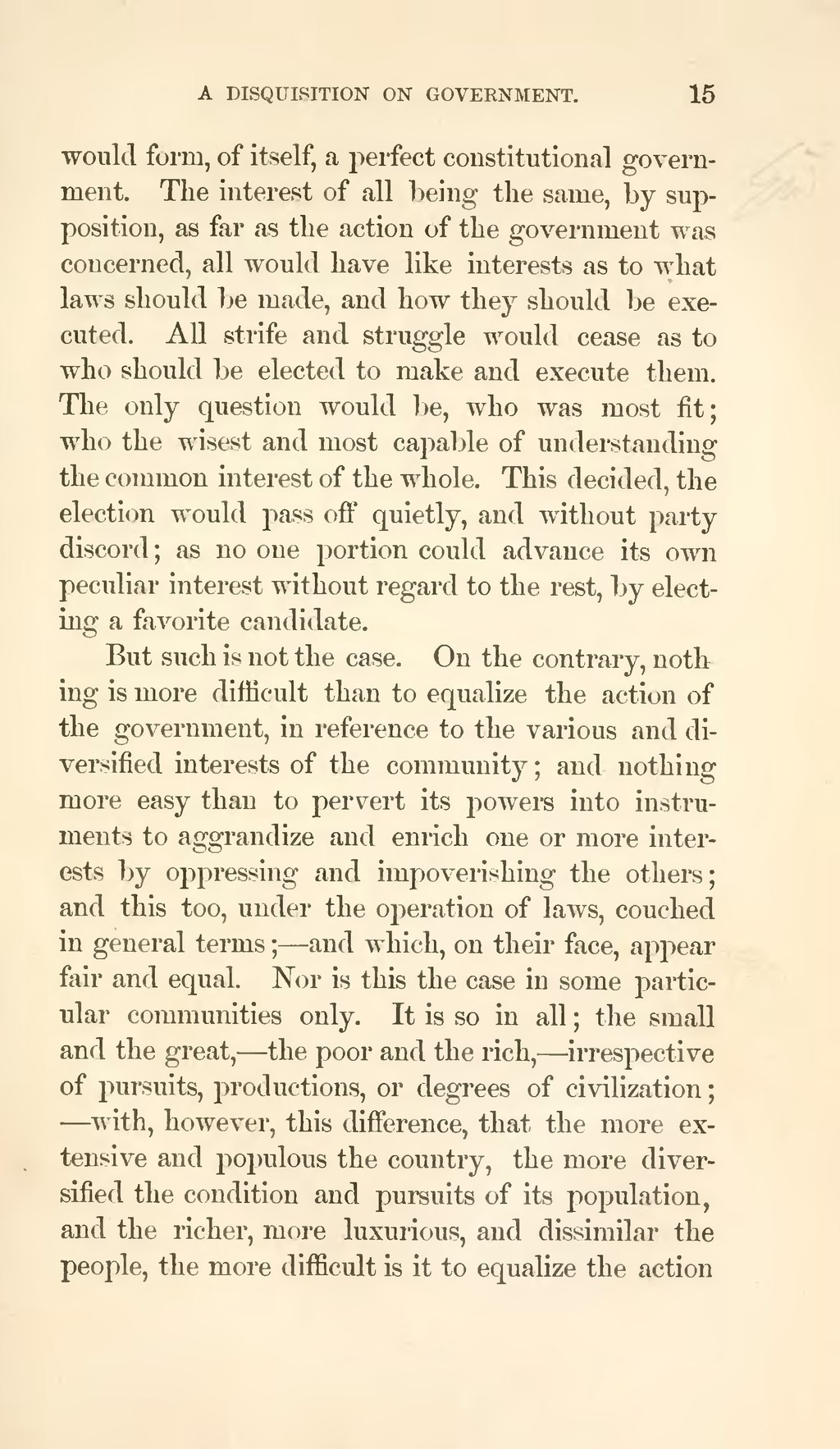would form, of itself, a perfect constitutional government. The interest of all being the same, by supposition, as far as the action of the government was concerned, all would have like interests as to what laws should be made, and how they should be executed. All strife and struggle would cease as to who should be elected to make and execute them. The only question would be, who was most fit; who the wisest and most capable of understanding the common interest of the whole. This decided, the election would pass off quietly, and without party discord; as no one portion could advance its own peculiar interest without regard to the rest, by electing a favorite candidate.
But such is not the case. On the contrary, nothing is more difficult than to equalize the action of the government, in reference to the various and diversified interests of the community; and nothing more easy than to pervert its powers into instruments to aggrandize and enrich one or more interests by oppressing and impoverishing the others; and this too, under the operation of laws, couched in general terms — and which, on their face, appear fair and equal. Nor is this the case in some particular communities only. It is so in all; the small and the great — the poor and the rich — irrespective of pursuits, productions, or degrees of civilization — with, however, this difference, that the more extensive and populous the country, the more diversified the condition and pursuits of its population, and the richer, more luxurious, and dissimilar the people, the more difficult is it to equalize the action of the government — and the
